Projects
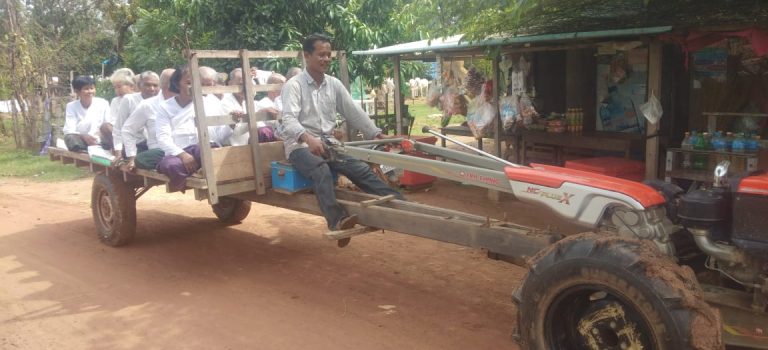
Some of Our Projects
Construction of Rice Bank by villagers
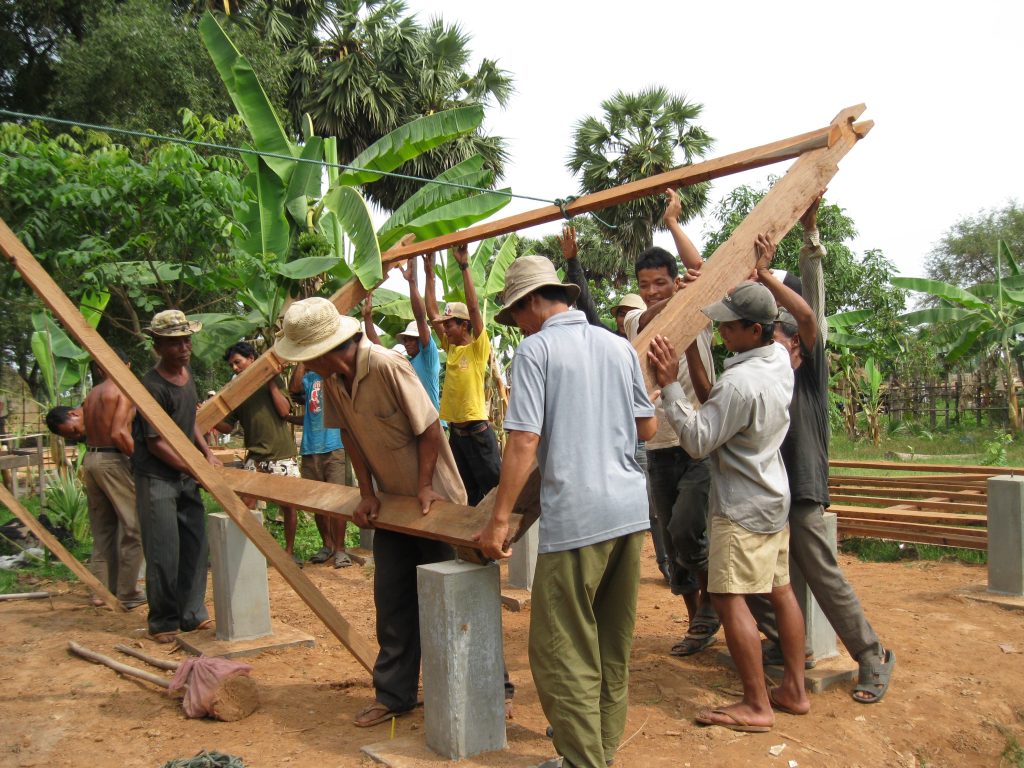
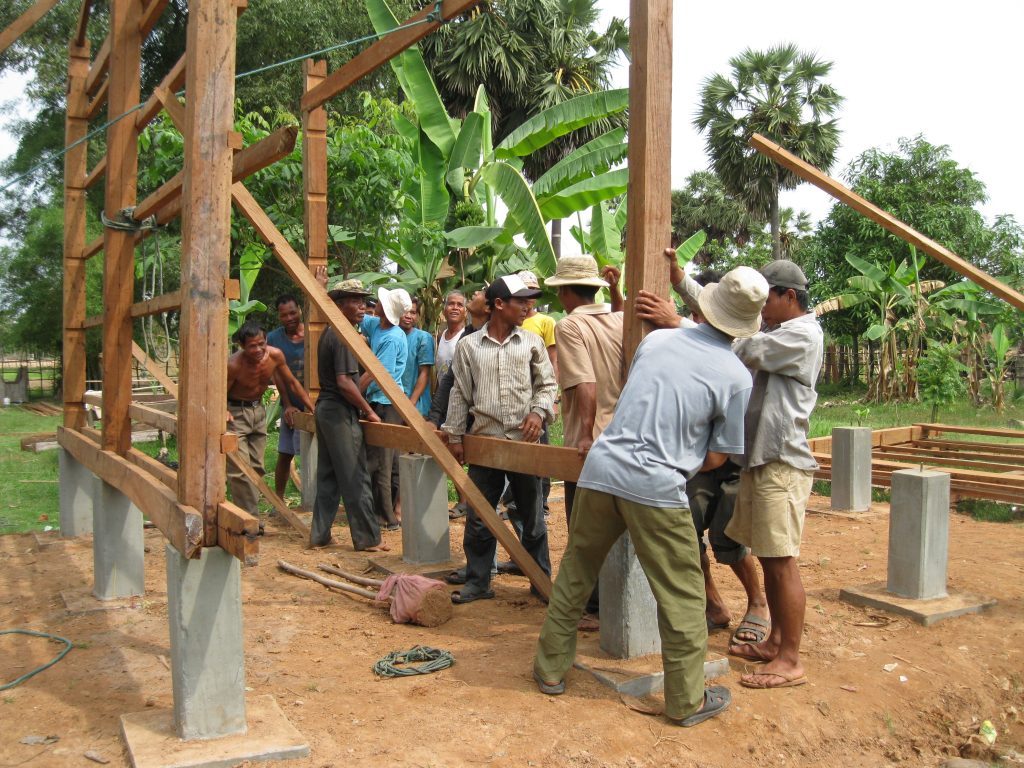
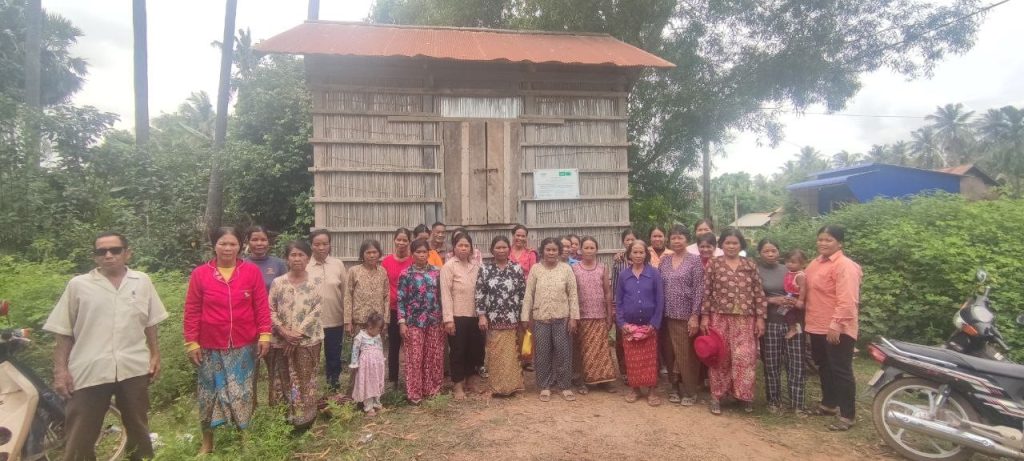
Project Context:
Many poor villagers in remote Cambodian communities suffer annual rice shortages lasting 3–6 months per year. With rice forming 74% of the Cambodian diet, this shortage affects children’s health, education, and often forces families into high interest debt or unsafe migration. To help break this cycle, the Rice Banks initiative was launched in 2009.
How it Works:
- Initial Setup: Lotus or Lotus’ donors provide funds to construct a rice store and an initial supply of rice capital.
- Community Involvement: Land is given by a families from the villages, the construction is done by families wishing to participate in the Rice Bank projects; a Rice Bank Committee (RBC) is elected with support from the Lotus-READA Project staff and the village elders.
- Loan System: Members borrow rice during the food shortage period of the year and repay with 20% interest after harvest.
- Interest Rate Breakdown:
– 15% to increase rice stock.
– 3% for the committee.
– 1% for administration costs.
– 1% for a social support fund
- Sustainability: Over time, some members are now able to deposit extra rice as savings. Eleven Rice Banks have now converted extra, extra rice to cash and have saved it with the Savings Groups where interest is earned.
Impact:
- 25 Rice Banks established in 25 villages, serving 1,399 people.
- The Rice Banks were a key source of support during the COVID-19 pandemic.
- Community led social schemes are now run by strong Rice Bank Committees.
- The Rice Banks have encouraged community solidarity, self reliance, and financial independence.
The Savings Group
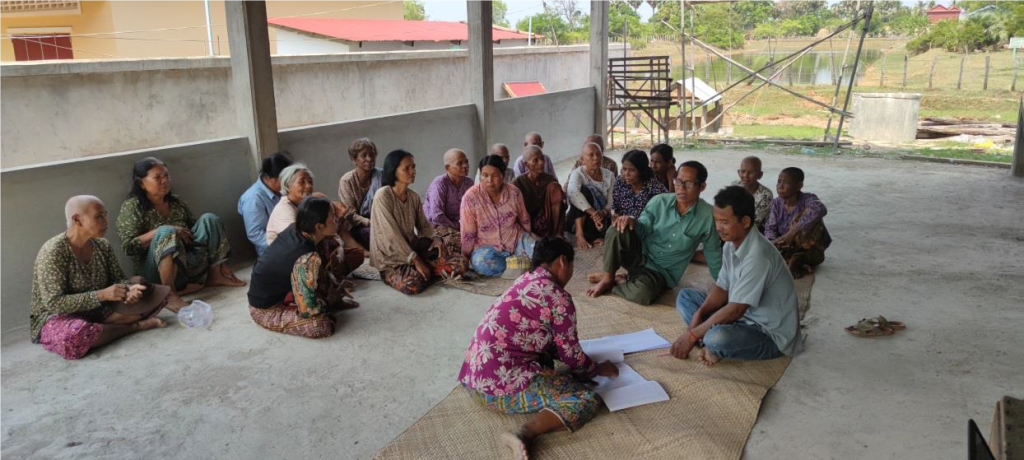
Project Context:
The Savings Groups project was created to establish small ‘savings pots’ from which small loans could be given to members of each Savings Group.
Savings Groups having been created by the Lotus-READA Project staff in most of the target villages. Once the Savings Groups were established, families from the each village were invited to become members and to save what they could each month.
How it Works:
- Families are invited to join their village Savings Group and to save what they can each month.
- Families are then able to take out small loans at low interest.
- The Savings Groups Committees are elected by members of each Savings Group and are operate for the benefit of all members.
Impact:
- They encourage regular savings.
- Interest is earned on the savings.
- Access to small loans at low interest.
- They create the basis of trust within communities.
- They were the catalyst for the later created Small Loans project.
Project Context:
Building on from the Savings Groups, Lotus launched the Small Loans Project to provide larger, low interest loans to Savings Groups members.
How it Works:
- Lotus lends the capital to READA at 0.69% interest which enables the Lotus-READA Project staff to operate the Small Loans Project.
- Savings Groups Committees can borrow up to $3,300 over 24 months at .67%.
- Savings Groups members can borrow up to $110 for a period of 24 months from the Savings Groups Committees at 1.3% interest.
- The loans borrowed by Savings Groups members can only be used for agriculture activities, animal activities, or small business activities.
- Savings Groups Committees handle any defaults internally.
Impact:
- Since the Small Loans Project first started 6 years ago, there have been no defaults.
- The Small Loans Project has strengthened the Savings Groups.
- The Small Loans Project supports income generating activities during economic downturns, particularly during COVID-19.
Project Context:
Lotus started the Small Loans for Vulnerable Families project to enable the poorest and most vulnerable families in its communities access to interest free small loans.
How it Works:
- 34 families are selected from 6 villages within the Lotus communities.
- Each receives a $150 interest free loan for agricultural activities, animal activities, or small business activities.
- Each family receives financial and vocational training from the Lotus-READA Project staff.
- Loans are repaid after income is generated.
Impact:
- It enables the poorest families year round food access and income sustainability.
- Families develop valuable skills such as correct methods (right feeds, vaccinations) in animal raising, correct seeds and fertilisers to use in agricultural activities, and financial management of small business activities.
- As the initial Small Loans for Vulnerable Families project was so beneficially to the participating families, Lotus has decided to extend the project on-going.
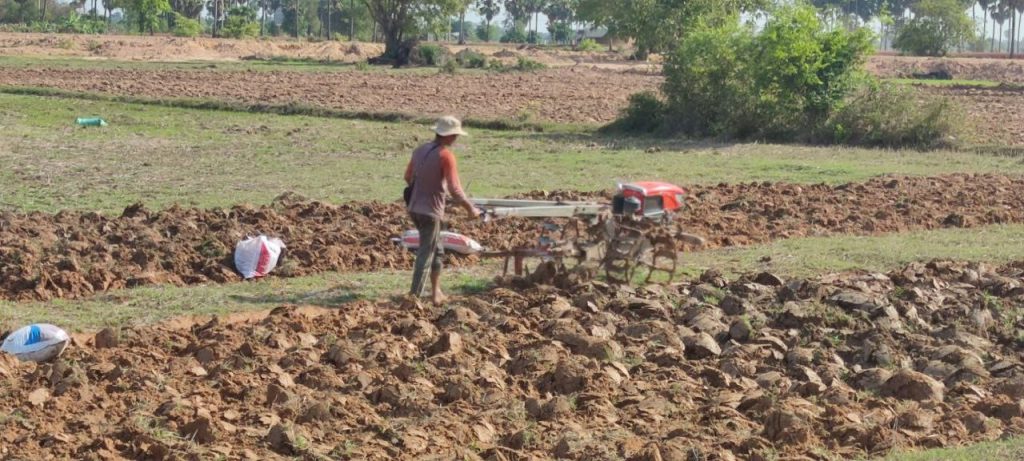
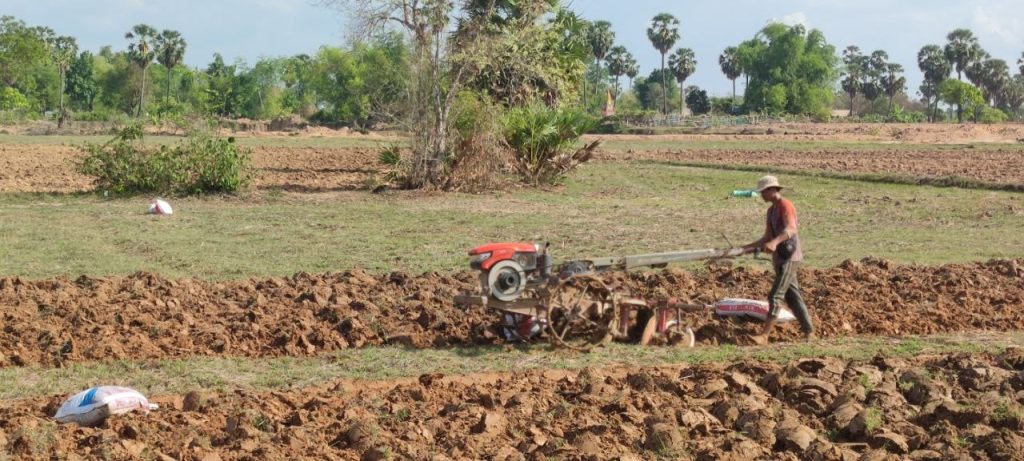
Project Context
Many of the villages in our communities lacked access to hand held tractors, which made planting laborious and lengthy resulting in reduced yields.
How it Works:
- Lotus gives a 3 year interest free loans via READA to Rice Bank Committees to buy hand held tractors.
- The tractors are first hired to the Rice Bank members ($30/ha), then to the other families in the villages ($35–$40/ha).
- Hire fees are paid after harvest.
- When not used for planting or harvesting activities the tractors are used for transportation; goods and people.
Impact:
- Increased rice yield through timely planting.
- Freed up time for families to do other income generating work.
- Profits after repayment of interest free loans invested in Rice Banks.
- At the end of the 3 year project the tractors become a community assets.
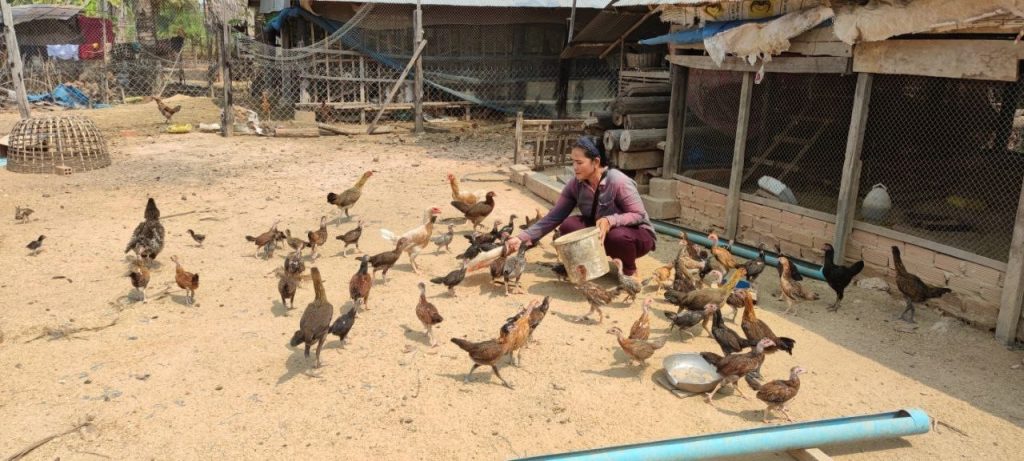
Project Context:
The Community Chicken projects were created to increase the income and food security of participating families. Lotus began the 1 year long Community Chicken project in 2017 with an interest free loans.
How it Works:
- Selected families receive loans for clean and safe cages to be constructed, and for feeds, and vaccinations.
- Selected families receive loans for the purchase of 80 chicks after the cages have been construction.
- Loans repaid in two parts after second and fourth chicken raising cycles.
- Ongoing training and support from Lotus-READA Project staff.
Impact:
- Over 896 families have participated in the Community Chicken Project since 2017.
- Most families continue with raising chickens independently after the project ends.
- Participating families have gained the ability to be self sufficiency and resilient through having access to interest free loans and on-going training by the Lotus-READA project staff.
Old ladies receiving their ‘pension’ and looking at a photo album given to them by Lotus’ Trustees
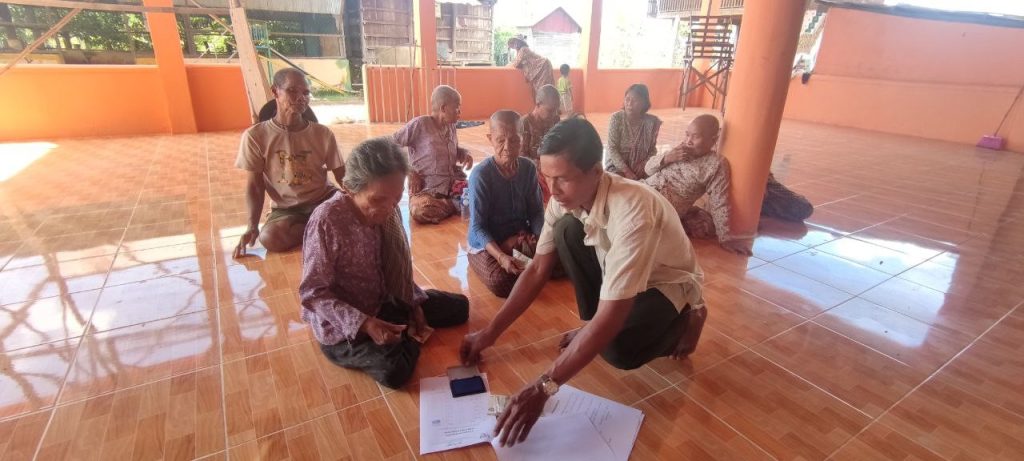
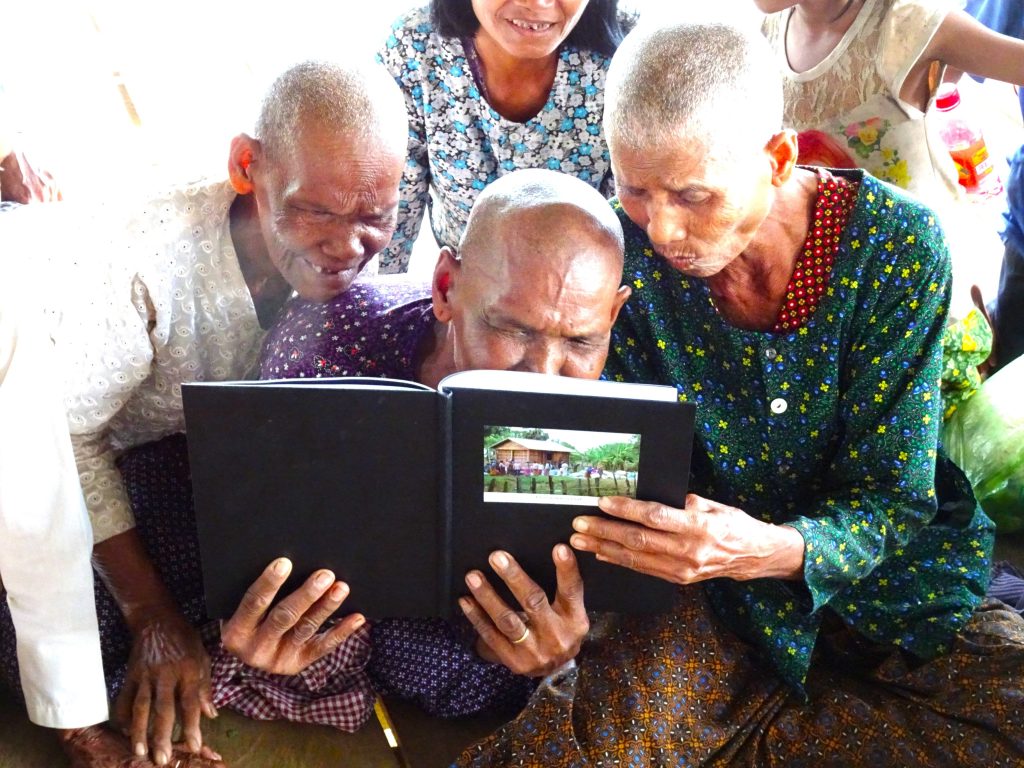
Project Context:
The Social Protection project was created in 2012. The project helps elderly women without family, or elderly women looking after grandchildren because their own children have died.
How it Works:
- 20 elderly women in two villages are given a small monthly pension.
- The monthly pension enables the elderly women with the means to supplement their food by creating small home gardening activities.
- Frequent visits and emotional support from the Lotus-READA Project staff.
- The project is implemented with village involvement.
Impact:
- This is the first elderly support programme of its kind in Siem Reap.
- Gained recognition from Cambodia’s Ministry of Social Affairs.
- Created a model for elderly support in rural settings.
Lotus feels honoured to be able to help these women in some small way. The Trustees’ visits to the elderly women are always joyful, lively and happy affairs and both sides look forward to them with delight.
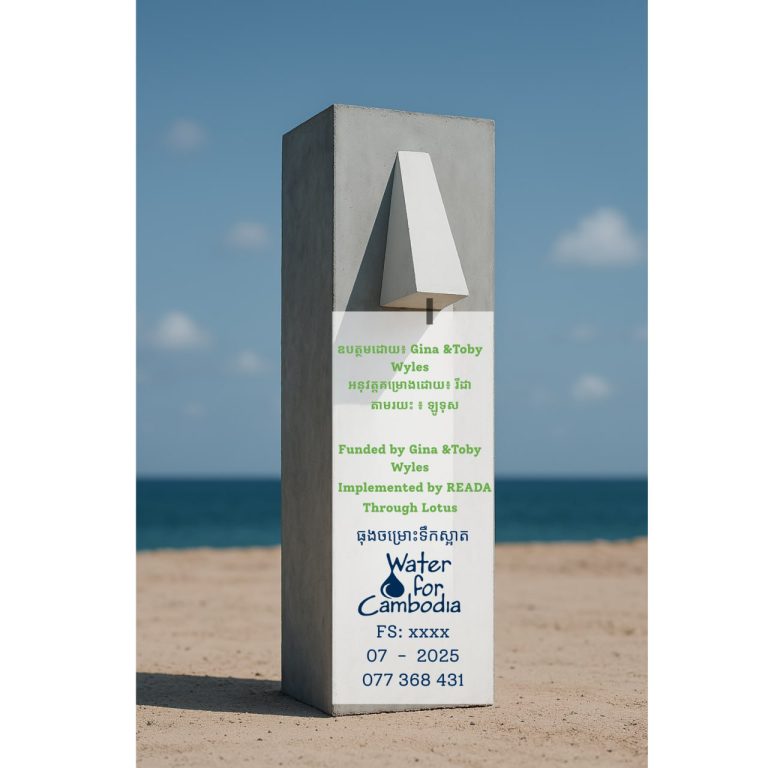
Project Context:
Access to clean water has been a long term problem for remote communities. The lack of access to clean water forces families to use unsafe water which leads to waterborne deceases. In 2021 Lotus was introduced to Water for Cambodia, an NGO producing Biosand Filters and providing them to remote poor communities via donations. Lotus decided to initial buy some Biosand Filters with its own funds for the poorest families in its communities. Since then Lotus provides Biosand Filters to the poorest families as and when it has third party donations.
How it Works:
- The Lotus-READA Project Manager approaches Water for Cambodia and places an order for Bisosand Filters. The Bisosand Filters are produced and then installed by Water for Cambodia with the assistance of the Lotus-READA Project staff.
- The Lotus-READA Project staff has been trained by Water for Cambodia on how to maintain and repair the Biosand Filters, and they in turn train the participating families.
- Each Biosand Filter provides 480 litres per day which far exceeds the ceramic filters which provide 30 litres per day.
- Lotus, through the Lotus-READA Project staff, is exploring a 50-50 co-financing for “middle” families.
Impact:
- So far 97 families have been given Biosand filters and 3 large storage containers each.
- This has greatly improved the health of all members of the families, and has reduced the rate of waterborne diseases.
